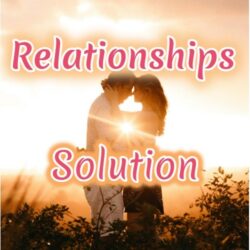
10 Signs of an Emotionally Abusive Relationship: Recognizing the Red Flags
Emotional abuse can be subtle, leaving victims confused and doubting their experiences. Unlike physical abuse, emotional abuse leaves no visible scars, making it harder to identify. Understanding the 10 signs of an emotionally abusive relationship is crucial for recognizing when a relationship has become toxic and harmful to your well-being.
In this guide, we’ll break down the common signs of emotional abuse, provide examples, and offer practical advice on seeking help. At RelationshipsSolution.com, our top-notch experts and resources can support you in reclaiming your sense of self and navigating your way out of toxic dynamics.
1. Constant Criticism and Belittling
Emotional abusers often belittle their partners, making them feel inadequate or unworthy.
What This Looks Like:
- Frequent put-downs disguised as jokes.
- Criticizing your appearance, decisions, or achievements.
- Undermining your confidence by highlighting your perceived flaws.
Impact: Over time, constant criticism erodes self-esteem and creates a sense of helplessness.
2. Manipulative Behavior
Manipulation is a hallmark of emotional abuse, leaving you feeling guilty or responsible for their actions.
Examples of Manipulation:
- Gaslighting: Denying events or feelings to make you question your reality.
- Playing the victim to shift blame onto you.
- Using guilt as a tool to control your choices.
Why It’s Harmful: This behavior undermines your autonomy and mental clarity.
3. Isolation from Friends and Family
Abusers often isolate their partners to exert control and limit external support.
Signs of Isolation:
- Discouraging you from spending time with loved ones.
- Making you feel guilty for prioritizing relationships outside of your partnership.
- Creating conflict with those who care about you.
Effect: Isolation fosters dependency, making it harder to leave the relationship.
4. Excessive Jealousy and Possessiveness
While jealousy is natural in small doses, excessive jealousy is a red flag.
Behaviors to Watch For:
- Constantly accusing you of infidelity without reason.
- Monitoring your phone, social media, or whereabouts.
- Displaying anger when you interact with others.
Impact: These actions create an environment of fear and mistrust.
5. Emotional Withholding
An abuser may withhold affection, attention, or communication as a form of punishment.
Common Tactics:
- Giving the silent treatment.
- Refusing to acknowledge your emotions or concerns.
- Using affection as a bargaining chip.
Result: Emotional withholding fosters insecurity and a sense of unworthiness.
6. Blaming You for Their Problems

Abusers often deflect responsibility, placing the blame on their partner.
How It Manifests:
- Claiming you’re the cause of their bad mood or failures.
- Expecting you to fix their problems while offering no support in return.
- Turning every argument into your fault.
Consequence: This dynamic creates feelings of guilt and confusion.
7. Controlling Behavior
Control can take many forms, from finances to personal decisions.
Examples of Controlling Actions:
- Dictating how you spend money or time.
- Making decisions for you without your input.
- Expecting you to follow their rules or face consequences.
Why It’s Toxic: Control undermines your independence and self-worth.
8. Intimidation and Threats
Emotional abusers may use fear to maintain dominance.
Tactics of Intimidation:
- Yelling, slamming doors, or making aggressive gestures.
- Threatening to harm themselves or you.
- Using subtle intimidation to keep you in line.
Impact: Fear stifles open communication and fosters an unhealthy power dynamic.
9. Inconsistency and Unpredictability
An emotionally abusive partner may oscillate between kindness and cruelty.
Signs of Inconsistency:
- Alternating between affectionate and abusive behavior.
- Making promises they never keep.
- Keeping you guessing about their feelings or actions.
Why It’s Harmful: This creates emotional confusion and dependence on their approval.
10. Dismissing Your Feelings
Emotional abusers often invalidate your emotions, making you feel unheard and invisible.
What This Looks Like:
- Mocking or downplaying your concerns.
- Labeling you as “too sensitive” or “dramatic.”
- Refusing to engage in meaningful conversations.
Effect: Emotional dismissal leads to self-doubt and a loss of confidence in your perspective.
Conclusion: 10 Signs of a Emotionally Abusive Relationship
Recognizing these 10 signs of an emotionally abusive relationship is the first step toward reclaiming your life and self-worth. If you find yourself in such a relationship, know that help is available. RelationshipsSolution.com offers expert advice, counseling resources, and tools to support your journey to healing and independence.
Key Takeaways:
- Emotional abuse can be subtle but deeply damaging.
- Identifying the signs empowers you to take action and seek help.
- Support from trusted professionals can guide you toward a healthier, happier life.
Explore More: Visit RelationshipsSolution.com to access a wealth of resources, connect with top-notch experts, and counselors. Take the next step toward breaking free from emotional abuse. Your well-being matters, and we’re here to help you every step of the way.


